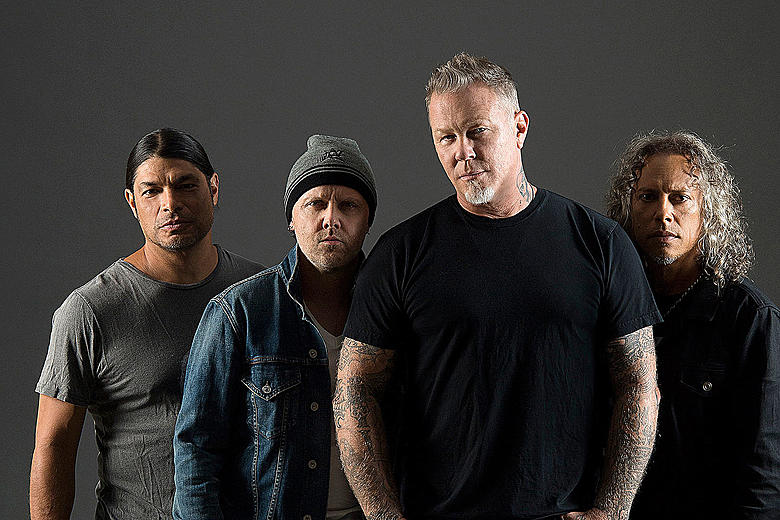Robert Plant and Ozzy Osbourne are iconic figures in the history of rock music, each defining a different facet of the genre. Plant, as the golden-voiced frontman of Led Zeppelin, brought a mystical, bluesy power to hard rock with his soaring vocals and poetic lyrics, helping shape the sound of the 1970s. Osbourne, the “Prince of Darkness” and lead singer of Black Sabbath, pioneered heavy metal with a darker, heavier sound that introduced themes of doom and the occult to mainstream music. Though their styles differ, both men became legendary symbols of rock excess, innovation, and enduring influence…
Rock music, since its inception, has been a canvas for innovation, rebellion, and artistic expression. Among its most influential figures are Robert Plant and Ozzy Osbourne—two legendary frontmen whose distinct styles and groundbreaking contributions have left indelible marks on the genre. While they hail from different subgenres and embody contrasting personas, both have become emblematic symbols of rock’s evolution, pushing artistic boundaries and inspiring generations of musicians and fans alike.
**Robert Plant: The Voice of Mysticism and Poetic Power**
As the charismatic lead singer of Led Zeppelin, Robert Plant is renowned for his soaring vocals, dynamic stage presence, and poetic lyricism. Emerging in the late 1960s, Led Zeppelin quickly became one of the most influential bands in rock history, blending blues, folk, psychedelia, and hard rock into a revolutionary sound. Plant’s voice, characterized by its wide range, expressive power, and mystical quality, played a central role in shaping the band’s iconic sound.
Plant’s lyrical style was marked by poetic imagery, mythological references, and a sense of mysticism. Songs like “Stairway to Heaven,” “Kashmir,” and “The Song Remains the Same” exemplify his ability to evoke emotion and create an almost otherworldly atmosphere. His vocal delivery combined raw power with delicate nuances, enabling Led Zeppelin to craft music that was both hard-hitting and deeply poetic. This approach helped define the sound of 1970s rock, influencing countless artists and solidifying Led Zeppelin’s reputation as one of the greatest and most innovative bands of all time.
Beyond his vocal prowess, Plant’s stage persona embodied a sense of wild, almost primal energy, blending elements of folk mysticism and rockstar charisma. His fashion—long hair, flowing garments, and an aura of ethereal mystique—became iconic, symbolizing the free-spirited ethos of the era. Through his pioneering blend of blues, folk, and hard rock, Plant elevated the frontman role and set new standards for vocal expression in rock music.
**Ozzy Osbourne: The Godfather of Heavy Metal**
In contrast, Ozzy Osbourne’s influence lies predominantly within the realm of heavy metal. As the lead vocalist of Black Sabbath, Osbourne helped pioneer a darker, heavier sound that would shape heavy metal’s identity. Formed in the late 1960s, Black Sabbath’s music was characterized by ominous riffs, doom-laden lyrics, and a sense of foreboding. Osbourne’s distinctive voice—gritty, ominous, and raw—became synonymous with the genre’s themes of darkness, occultism, and rebellion.
Black Sabbath’s groundbreaking debut album in 1970, featuring tracks like “Black Sabbath,” “N.I.B.,” and “War Pigs,” introduced a new sonic landscape that was darker and more aggressive than traditional rock and blues. Ozzy’s vocal delivery—often guttural and haunting—complemented the band’s heavy riffs and dark themes, creating a sound that was both intimidating and compelling. Their influence extended beyond music into the cultural realm, as they became symbols of rebellion and counterculture.
Ozzy’s persona also contributed to his legendary status. Known for his wild antics, heavy drinking, and later, his reality TV fame, Ozzy embodied the excess and chaos associated with rock stardom. His stage presence was unpredictable and theatrical, often incorporating dark imagery and theatrics that amplified the band’s ominous sound. As the “Prince of Darkness,” Ozzy became a symbol of the rebellious spirit of heavy metal and a pioneer who expanded the genre’s thematic scope.
**Contrasting Styles, Shared Legacy**
Though Robert Plant and Ozzy Osbourne represent different facets of rock music—one emphasizing poetic mysticism and bluesy power, the other pioneering darkness and heaviness—they share a common legacy of innovation and influence. Both frontmen redefined their respective genres, pushing boundaries and inspiring countless artists.
Plant’s influence can be seen in the development of hard rock and progressive rock, with singers like Freddie Mercury, Axl Rose, and Chris Cornell citing him as an inspiration. His fusion of poetic lyricism with powerful vocals set a standard for vocalists aiming to combine technical skill with emotional depth.
Ozzy’s impact is equally profound within heavy metal and beyond. His vocal style and thematic focus helped shape the genre’s identity, influencing bands like Metallica, Iron Maiden, and Slayer. His ability to embody the dark, rebellious spirit of metal made him an enduring icon, transcending music to become a pop culture figure.
**Enduring Influence and Cultural Significance**
Both Plant and Ozzy have endured over decades, adapting to changing musical landscapes while maintaining their core identities. Robert Plant’s recent collaborations and solo projects continue to explore new musical territories, emphasizing his versatility and ongoing relevance. Ozzy’s solo career, marked by hits like “Crazy Train” and his participation in reality TV, demonstrates his ability to reinvent himself and sustain his legendary status.
Their influence extends beyond music into fashion, attitude, and cultural symbolism. They embody the spirit of rock—its excess, its experimentation, and its challenge to societal norms. Their careers serve as testament to the power of individuality and artistic innovation.
**Conclusion**
Robert Plant and Ozzy Osbourne are more than just iconic figures; they are archetypes of rock’s diverse spirit. Plant’s poetic mysticism and soaring vocals helped craft the sound and aesthetic of 1970s hard rock, while Ozzy’s dark, heavy sound laid the foundations for heavy metal. Despite their stylistic differences, both have contributed to the evolution of rock music, inspiring countless artists and captivating audiences worldwide. Their legacies continue to influence and define the genre, ensuring their places in the pantheon of rock legends.


